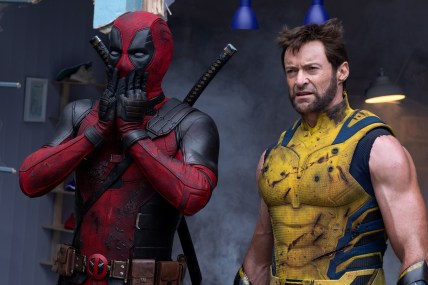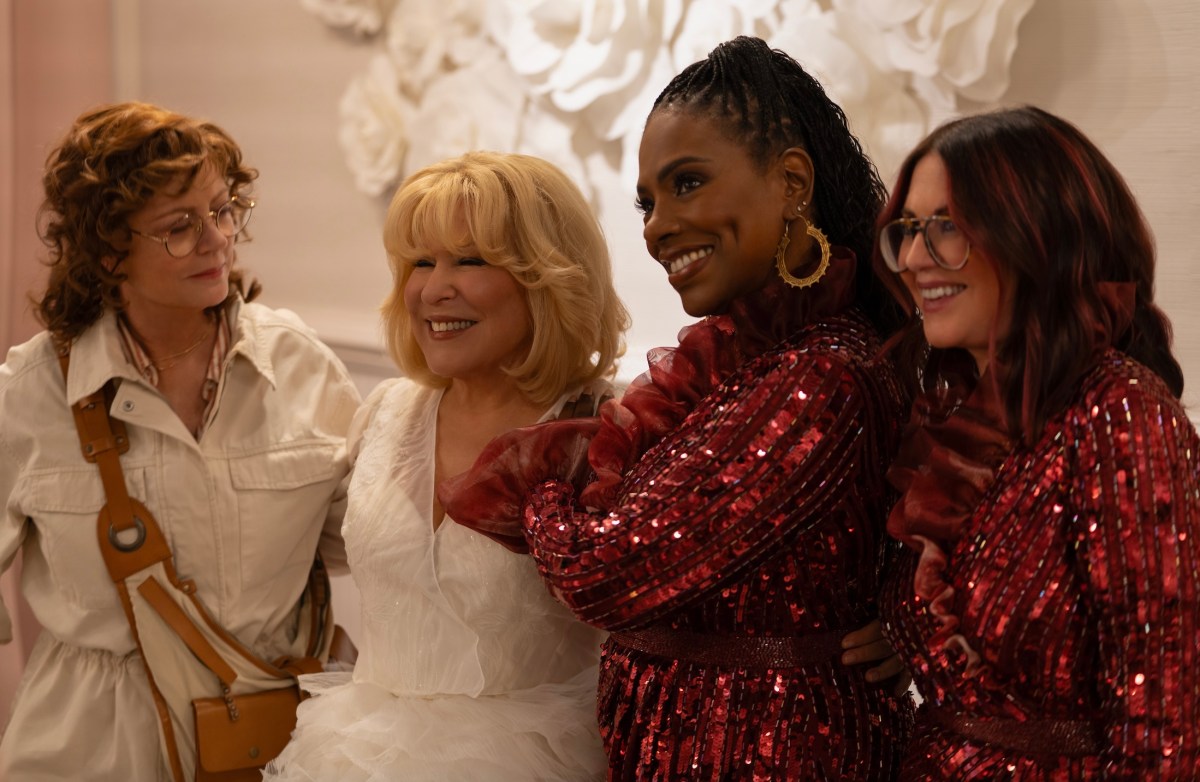YouTuber Breaks Down Everything Wrong With The Lord Of The Rings: The Rings Of Power Using Just One Image From The New Trailer

YouTube Channel The One Ring decided to explain all the problems with Prime Video’s The Lord of the Rings: The Rings of Power by examining a single shot from the recently released trailer that debuted at San Diego Comic-Con.
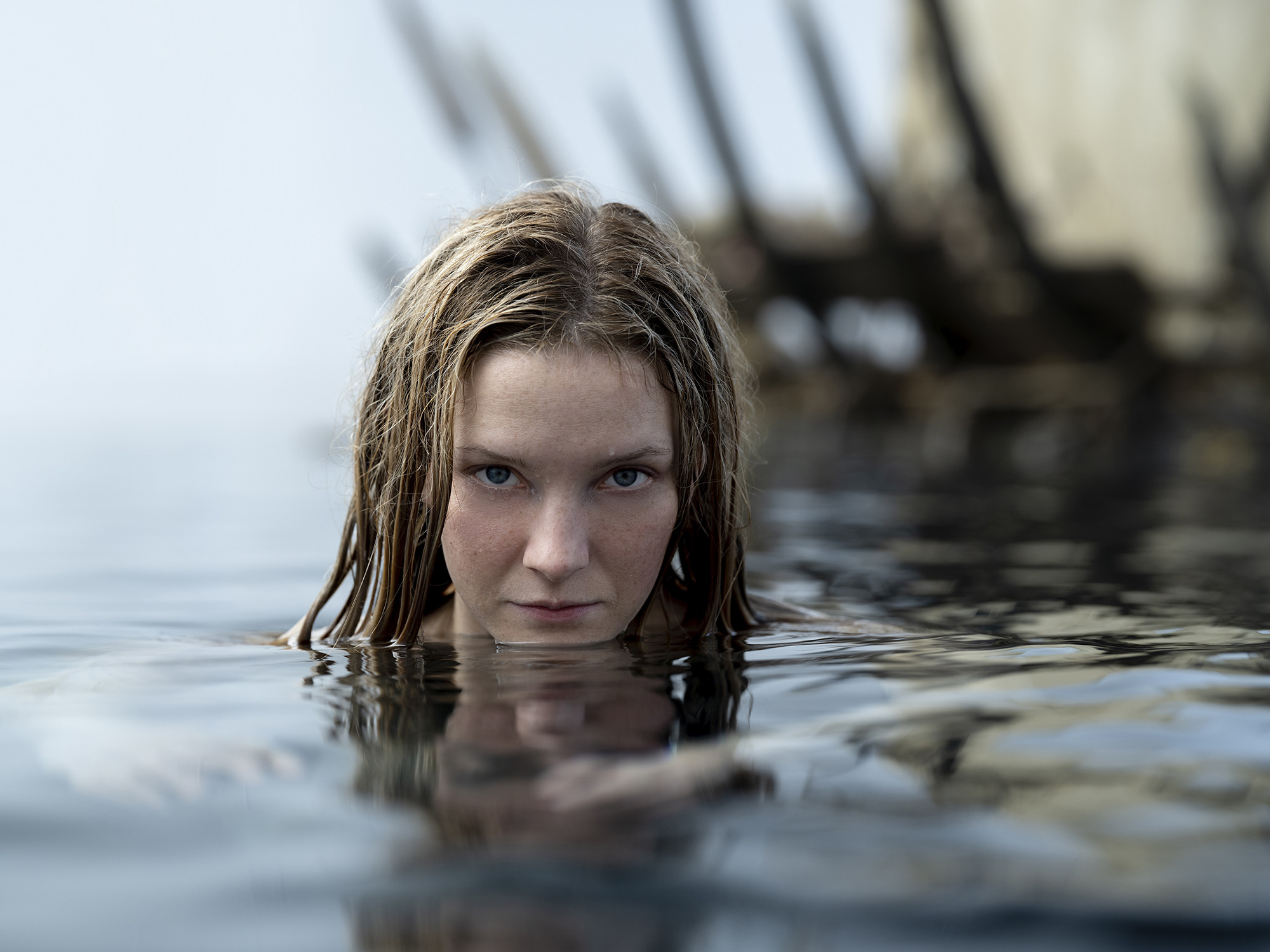
Morfydd Clark as Galadriel in The Lord of the Rings: The Rings of Power Credit: Ben Rothstein/Prime Video Copyright: Amazon Studios
At around the 7:15 mark of his video, The One Ring’s creator states, “I think those problems can all be summed up in this one image. This one image, here, of Míriel on the right, Tar-Míriel and Galadriel on the left.”
He then breaks down the image explaining how it highlights all the problems with The Rings of Power.
“So this image shows us three things. Let me go over those three things. It shows us it is changing the history. Two people who have never met. Never met in any of Tolkien’s works are now meeting,” he explains.
He continues, “They’ve said that they are confidently suppressing the timeline from 1800 or so years maybe even a little bit more down to a couple years, a decade, I don’t know they haven’t exactly said how far. And they’re bringing together everything from the rise of Annatar, who is Sauron disguised, to the downfall of Númenor nearly two entire centuries later. It’s a hell of a thing to do.”
“And there are so many stories in that 2000 years that could be great and obviously they’re going to have to make major changes to this story. And you can see those major changes right in this picture here with Míriel and with Galadriel,” he says.
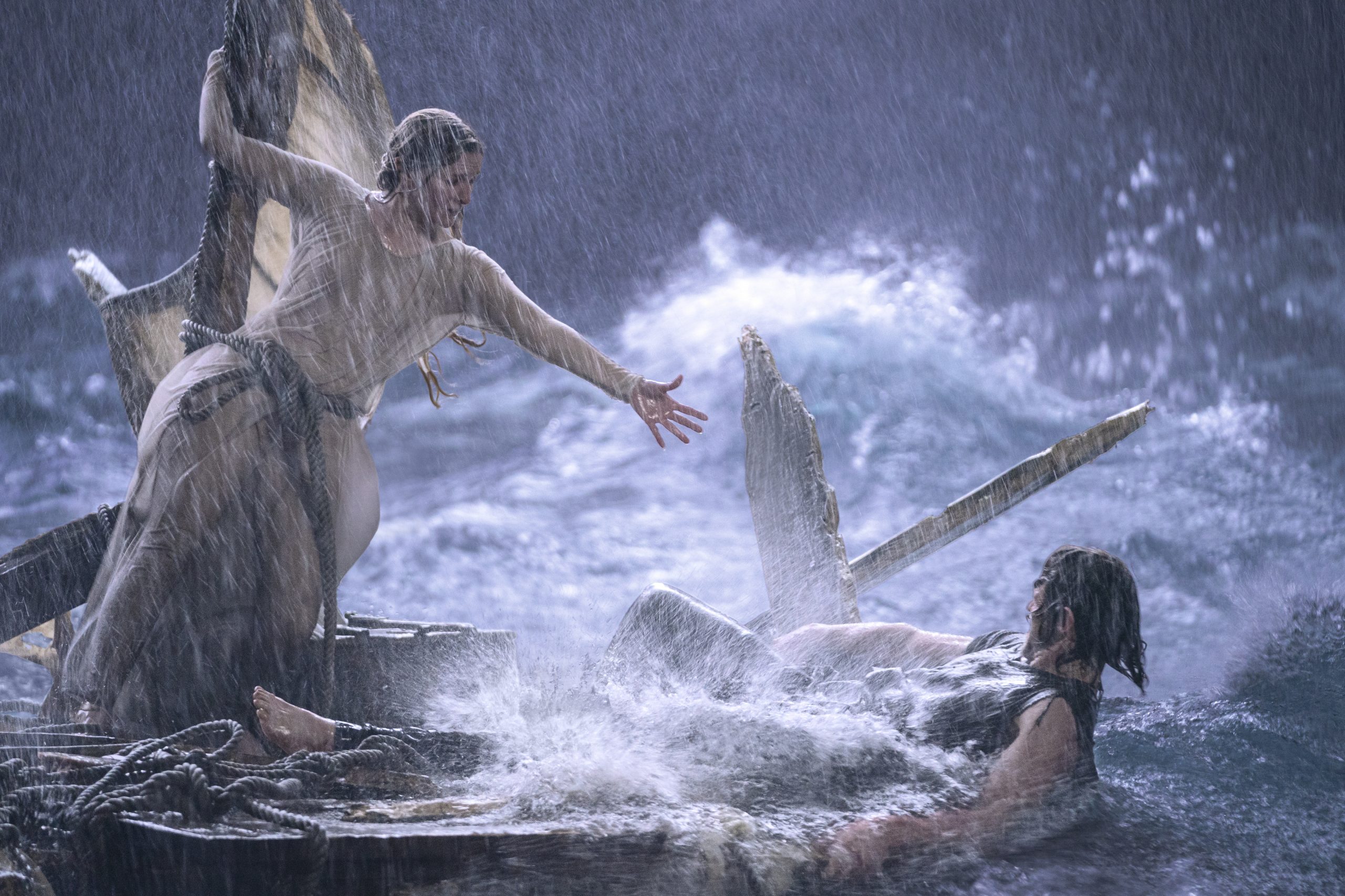
Morfydd Clark as Galadriel and Charlie Vickers as Halbrand in The Lord of the Rings: The Rings of Power
He then points to Tolkien’s own words on this idea of compressing his story as it pertained to a film treatment for The Lord of the Rings, “So these major changes to this story, I think Tolkien already addressed in a letter to Rayner Unwin in, is it 1958? But this is what he said when he was presented with a script treatment for The Lord of the Rings. He wrote, ‘The present script is rather a compression with resultant over-crowding and confusion, blurring of climaxes, and general degradation.’ And doesn’t that speak directly to The Rings of Power and what it’s doing?”
“Like in this image right here, it’s showing that we’re compressing Tar-Míriel and Galadriel and putting them right together when they would never have met otherwise,” he points out. “Galadriel was in a completely different place 1800 years later. Tar-Míriel, of course, was never the queen. We’ll get to that in a second.”
“But these things, right, it’s compression, it’s 1800 years down to five seasons of a story of one story that they’ve said where we’re just crushing it down,” he notes.
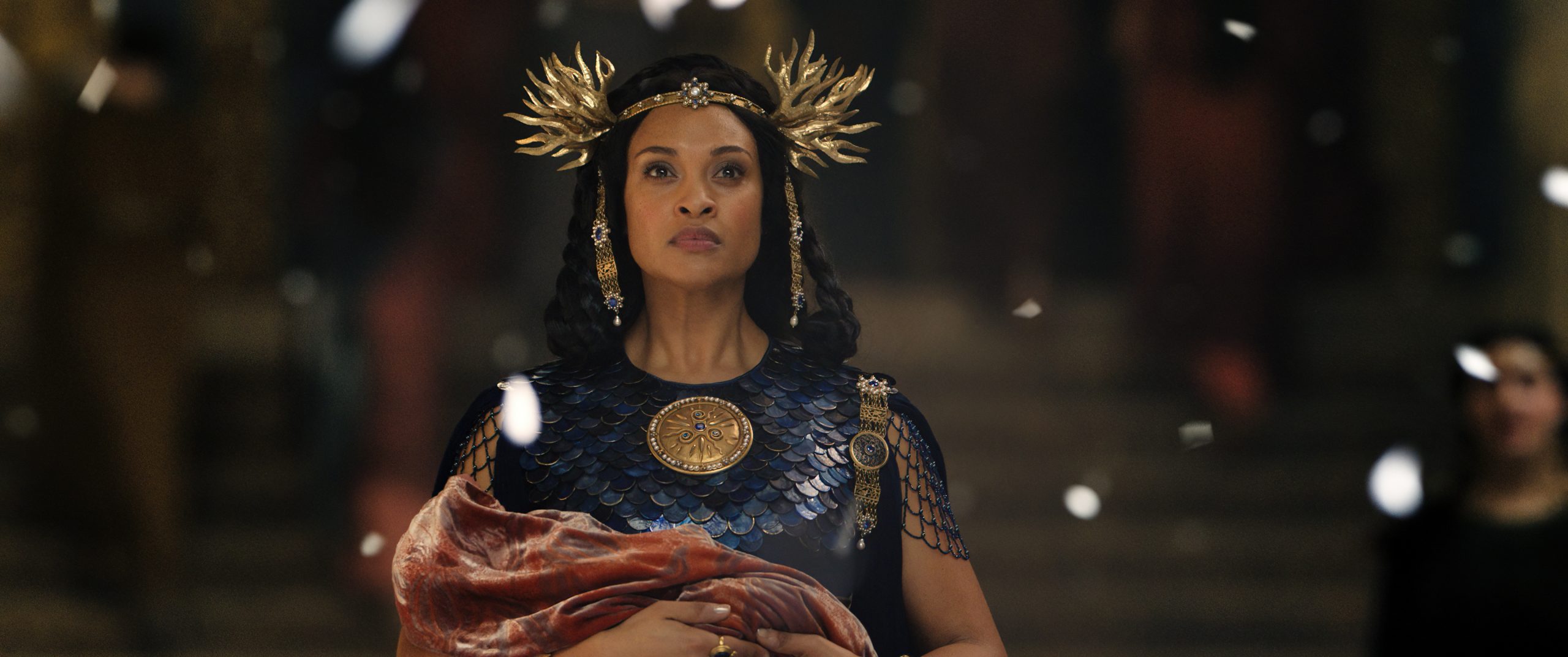
Cynthia Addai-Robinson as Queen Regent Míriel in Prime Video’s The Lord of the Rings: The Rings of Power
“And then Tolkien mentions overcrowding,” he highlights. “You’re sticking people in places that they never were and having them do things that hey never did. So you’re compressing the timeline, you’re compressing the people together when there was a great separation between them.”
He goes on, “And he mentions the blurring of climaxes. There are major climaxes that took place in these 1800s years from wars ended to kings moving on. These climaxes — I mean so much happens just in Númenor that to compress it down is a disappointment.”
“And to add more climaxes or to make these other climaxes more meaningless is a major disappointment,” The One Ring laments. “And when you have all those three things together Tolkien says, ‘you have a general degradation.’ When you change the original story you’re degrading what it was meant to tell. You are telling something else. You’re making things less meaningful. You’re making characters less impactful. And you’re generally disrespecting what the original author wrote.”
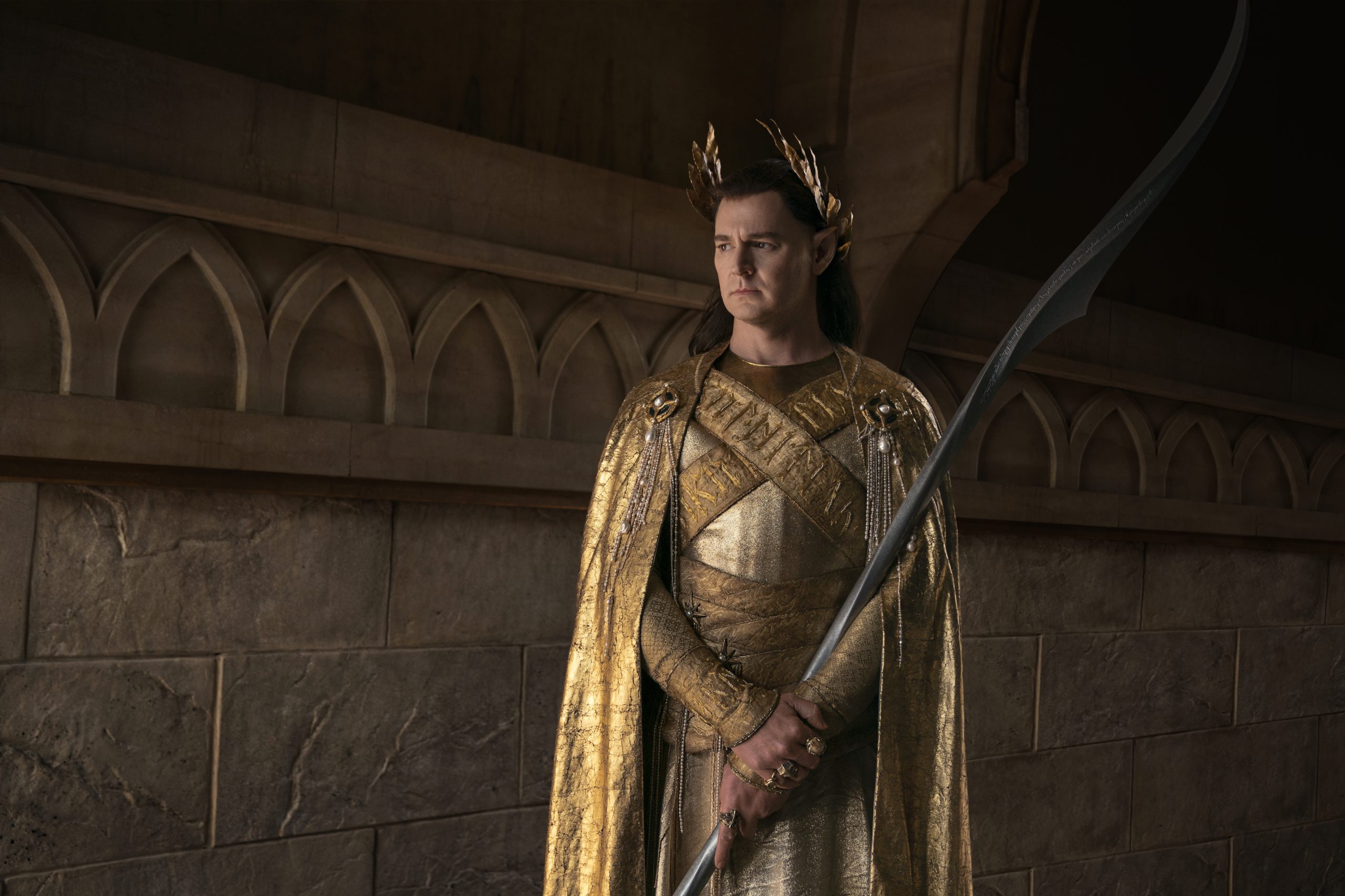
Benjamin Walker as High King Gil-galad in The Lord of the Rings: The Rings of Power
“So Amazon had the opportunity to deliberately build a story with care to really make us invest in those characters,” he points out. “I really thought that The Rings of Power would truly be all about the forging of the Rings of Power and how despite Sauron’s deception as Annatar, the Giver of Gifts, they crafted — the Elves crafted the three Elven rings in secret and they were able to resist and ultimately defeat Sauron after he pushed through to Eregion and was assaulting Rivendell.”
“All that sort of space is just — it’s going to be completely minimized in the tale over five seasons,” he explains. “In a tale where so much could have happened in that time. Where I thought that this would end with them pushing Sauron back to Mordor. But we’re not going to get that. Apparently, it’s going to end with the failure of Númenor. Because when you have Míriel in there that’s the only place it can go. Because that is her fall.”
“It doesn’t make sense if you’re going back to the text like they say they are,” he says.
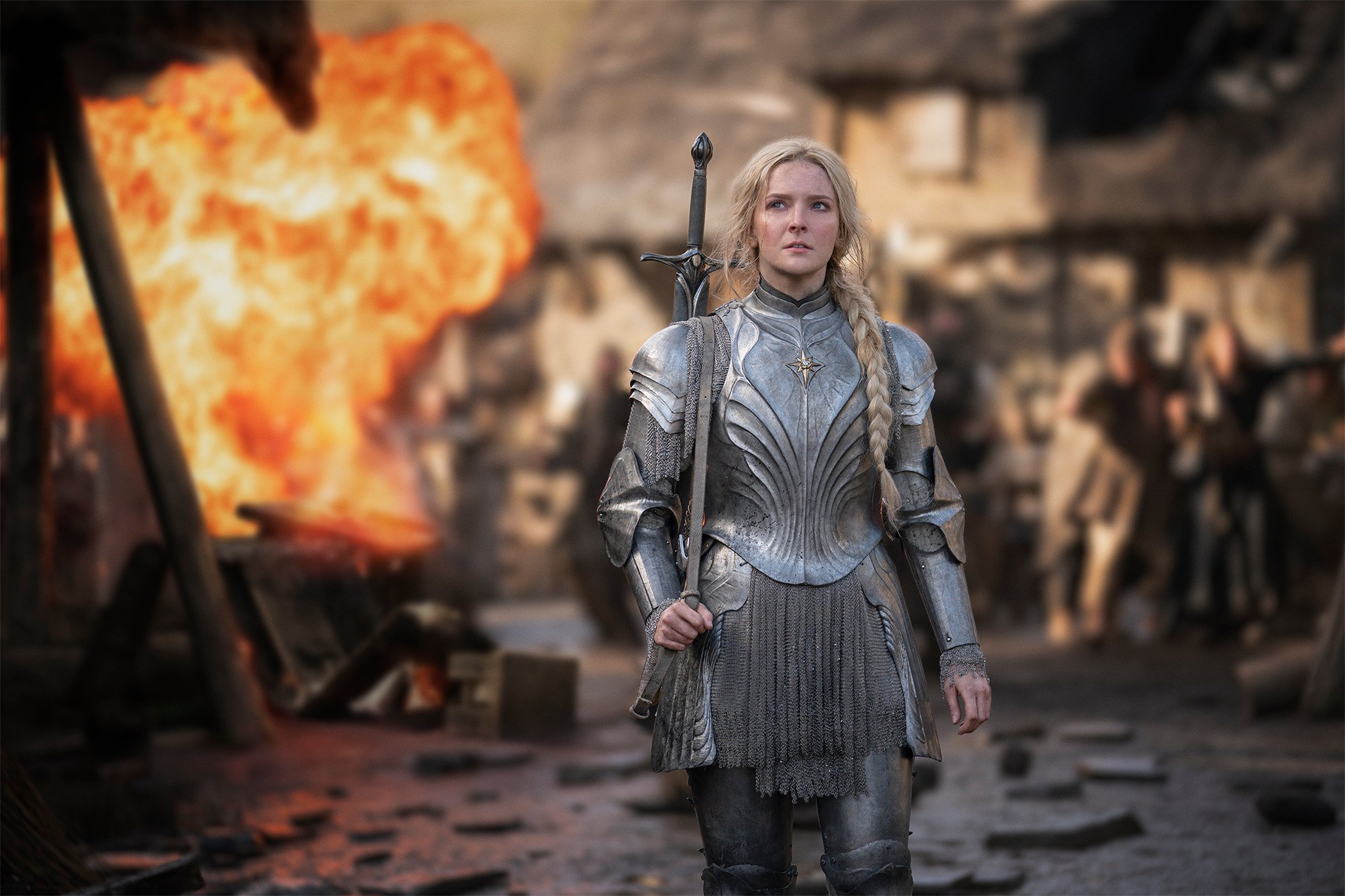
Morfydd Clark as Galadriel in The Lord of the Rings: The Rings of Power Credit: Ben Rothstein/Prime Video Copyright: Amazon Studios
“Again in this picture, I look at it and I say, ‘All right, you should have trusted Tolkien. You shouldn’t have changed the characters.’ Galadriel was never the driving force for fighting Sauron. She recognized him and she had a part, but between Gil-galad and Elrond it’s clear that they were the driving force for Sauron,” he elaborates.
“And Míriel she was never even in contact with Galadriel,” he points out. “That shift of her not even being a queen ever. She was usurped as the heir to the throne by Ar-Pharazôn by him forcibly marrying her.”
“But Galadriel she never came to Númenor. Tolkien never spoke of her coming to Númenor. He speaks of the Eldar coming to Númenor so we do have that. But we don’t have her coming to Númenor and we certainly don’t have her as a military commander. This here they’re meeting together, there’s another shot in the trailer of them clasping hands to say we’re in this together, we’re going to fight together. She was never a military commander,” he states.
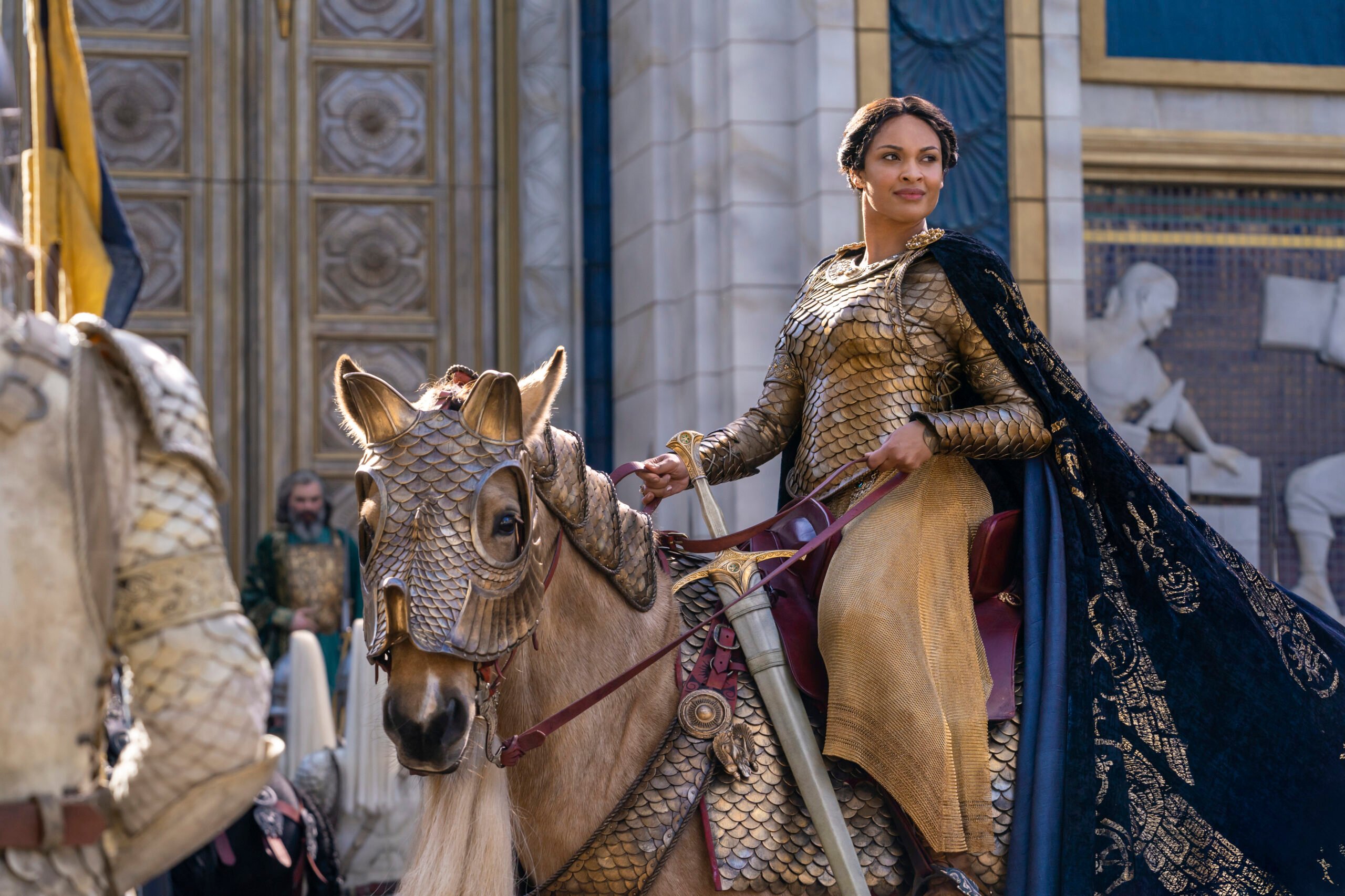
Cynthia Addai-Robinson as Queen Regent Míriel in Prime Video’s The Lord of the Rings: The Rings of Power
“She was perhaps the first one to see through to who Annatar, Sauron originally was, but she didn’t ever lead armies against him. Tolkien makes that clear,” he proclaims. “It was Elrond. It was Gil-galad. They were at the forefront.”
“And Míriel, she was never the queen of Númenor. Her rightful place — this is not her role that we see in this picture — her rightful place as heir to the throne was denied when Pharazôn forced her to marry him and he took the crown. She was never queen. And Tolkien wrote this storyline already. But Amazon decided that they knew better,” he says.
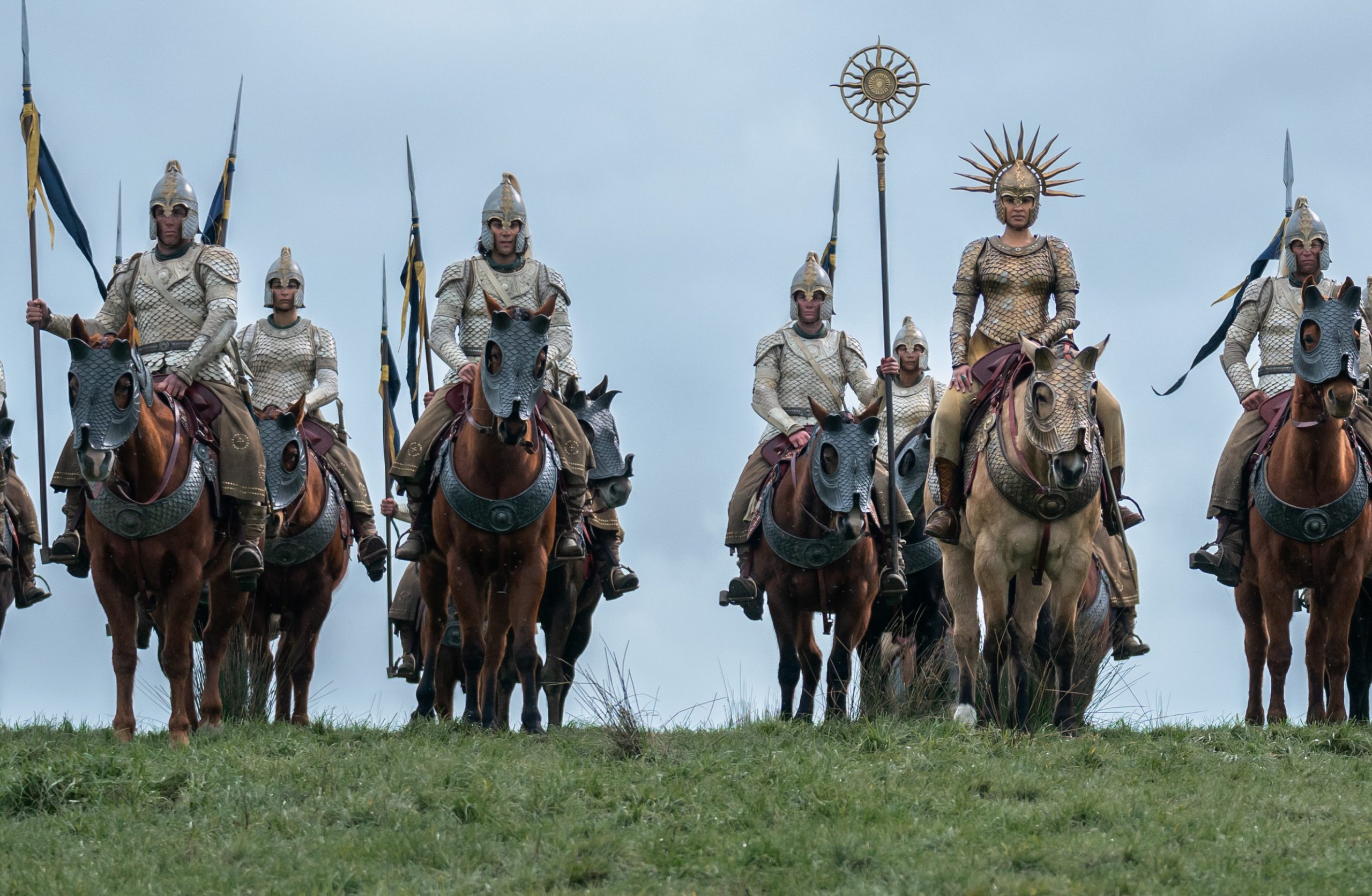
Maxim Baldry as Isildur and Cynthia Addai-Robinson as Queen Regent Míriel in Prime Video’s The Lord of the Rings: The Rings of Power
“And that brings me to my third point,” he continues. “So number one was it’s changing the history. People who never met are now meeting. And number two was they’re changing the characters. Galadriel was never the force for fighting Sauron. Míriel was never the Queen Regent. And we see them meeting here. They changed their relationship. They changed their motivations. They changed who they are.”
“And number three, and perhaps this encapsulates why they’re making the changes that they feel they need to make. Amazon is actively changing Tolkien’s work to reflect the world view that they want to create rather than what Tolkien created,” he relays.

The Lord of the Rings: The Rings of Power
“They believe that their world view is actually better than Tolkien’s,” he asserts. “And Tolkien’s world view was of Middle-earth. It was influenced by who he was, but it wasn’t like he was trying to inject his politics into Middle-earth. He was writing what he knew and what he knew was based on him going to World War I and him marrying Edith.”
“His world view wasn’t to be a political activator. It wasn’t to be someone who influenced the times. He wrote Middle-earth out of the love of writing Middle-earth, and out of the love of mythology, and out of the love of the language,” The One Ring details.
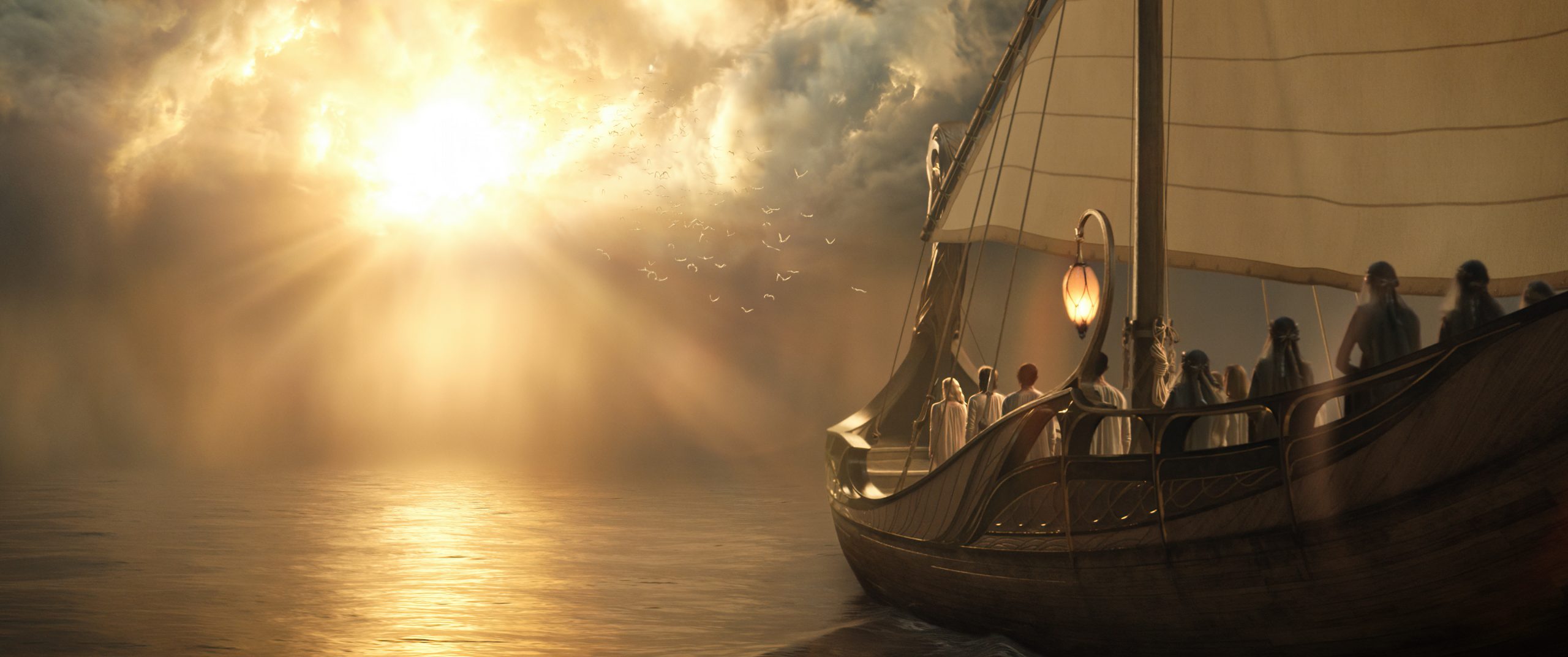
Morfydd Clark as Galadriel in Prime Video’s The Lord of the Rings: The Rings of Power
“So then this is what Amazon does. They take the characters that Tolkien wrote. They take Míriel and they take Galadriel, who was the most powerful Elf outside of Fëanor. And we’re talking power that isn’t a sword, that isn’t an axe, that isn’t a bow. They take her and make her a military leader, but Tolkien never explicitly wrote that she carried armies into battle. That was Gil-galad and Elrond,” he informs.
“She was the leader of her people and she had insight into the enemy that many others didn’t,” he explains. “So for instance, in Unfinished Tales, Tolkien wrote this, ‘In her wisdom Galadriel saw that Lórien would be a stronghold and point of power to prevent the Shadow from crossing the Anduin in the war that must inevitably come before it was again defeated (if that were possible); but that it needed a rule of greater strength and wisdom than the Silvan folk possessed.'”
“Her power was in the wisdom, was in the perception, and was also in the lore, which made her for lack of a better term magical,” he illustrates. “She had this kind of power. Tolkien makes clear that her power never in a sword, or a dagger, or a bow. He noted that she was, aside from Fëanor, the greatest Elf in lore. The greatest Elf in beauty. Her hair captured the light of Telperion and Laurelin, the original two trees. That was one of the ways Tolkien described her.”
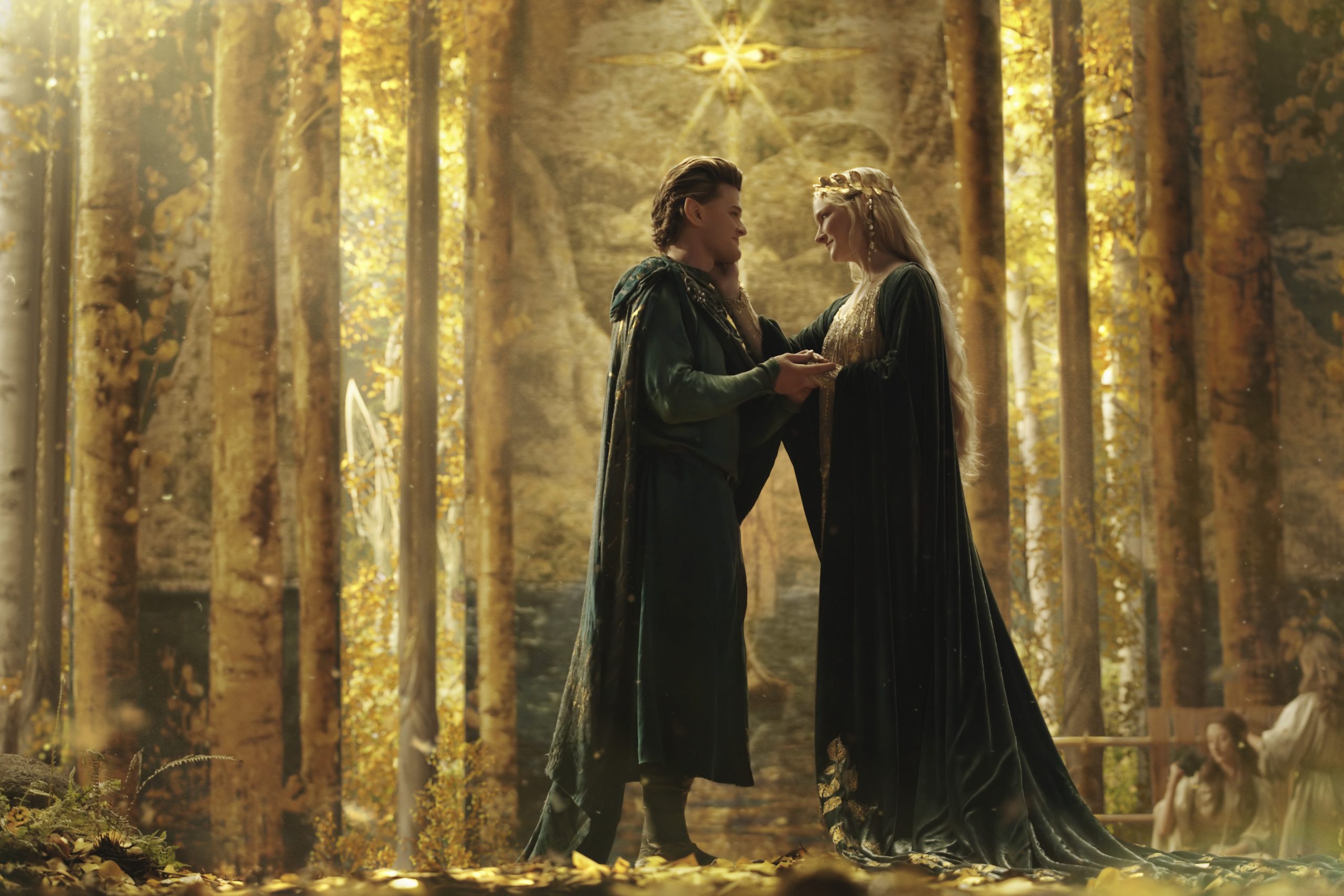
Robert Aramayo as Elrond and Morfydd Clark as Galadriel in The Lord of the Rings: The Rings of Power Credit: Ben Rothstein/Prime Video Copyright: Amazon Studios
“She studied under Melian, the Maia who had married Thingol of Doriath. Her power was in her ability to perceive others in the secret and still mysterious lore of the Noldor that gave her strength to preserve, to fight against magics that were beyond what normal Men and dwarves and most other Elves actually had,” he points out.
“And then she ended up getting the ring, Nenya, in order to withstand Sauron even better. So she was strong, incredibly strong, but it was never, never, never, never, never in swinging a sword, or loosing an arrow, or fighting the orcs, or leading an army,” he makes clear. “There is nothing that says she was a military commander in what Tolkien wrote. She was a leader, but being a military commander is a completely separate thing.”
“And to argue this from silence that ‘Oh well Tolkien never wrote it so we can go ahead and do it,’ it doesn’t fly,” he declares. “That’s not an argument you can make that anybody’s going to buy in the long run. You have to go with what Tolkien wrote and Tolkien did not write her as a commander. He wrote her as a powerful magical being of lore who was second only to Fëanor, the entire instigator in The Silmarillion, in the histories of the downfall of Middle-earth.”
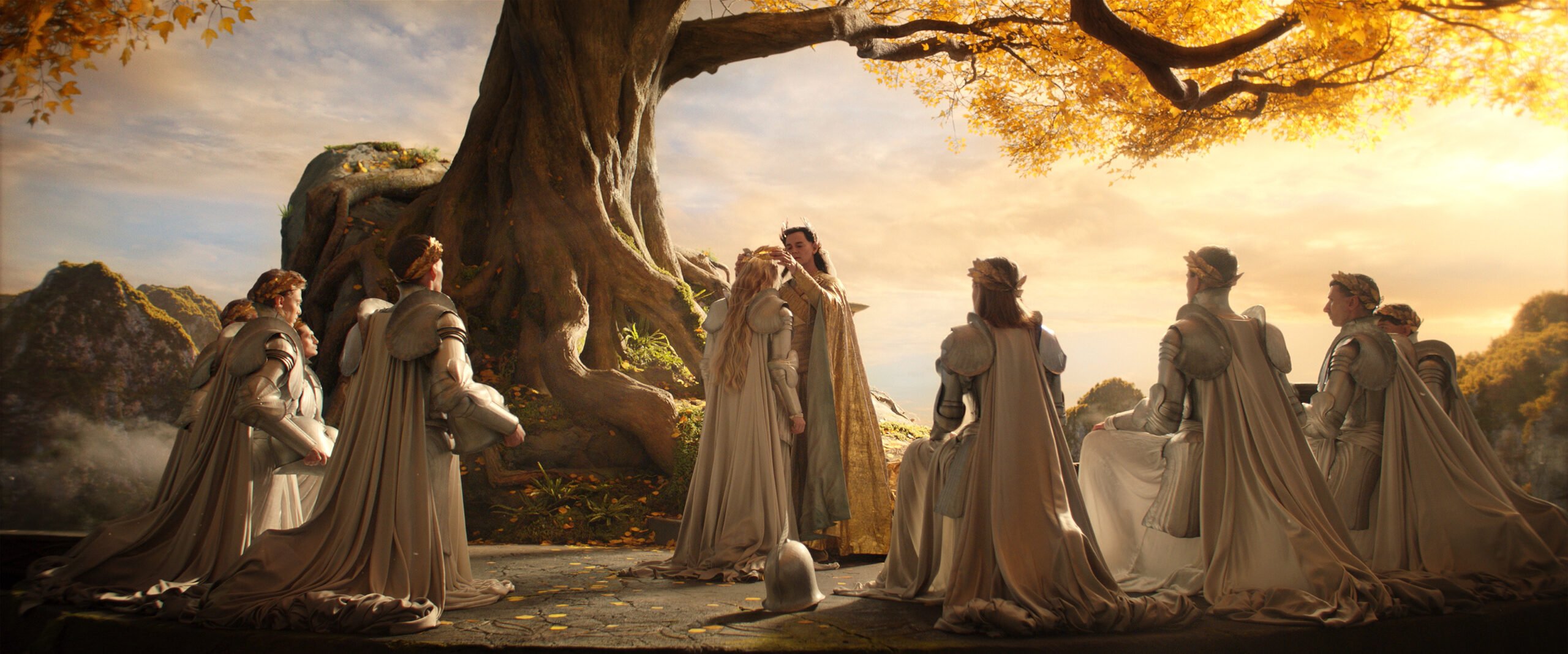
Morfydd Clark as Galadriel and Benjamin Walker as High King Gil-galad in The Lord of the Rings: The Rings of Power
“That’s how Amazon’s changing that with the winds of this culture,” he explains. “And now with Míriel we see the same thing. She’s taking on a role that she never had with Tolkien’s work. She’s the official ruler of Númenor in The Rings of Power.”
“But in Unfinished Tales Tolkien wrote that when her father died Ar-Pharazôn forced her to marry him and he took the crown,” he points out. “She would have been the queen, absolutely, but that wasn’t good enough for Amazon. She couldn’t be the powerful behind the scenes when trying to take Ar-Pharazôn down. She had to be shown as the queen to begin with.”
He continues, “They could have made her a powerful woman who doesn’t bow to his pressures, who works behind the scenes with the faithful in order to save Númenor, and in the end she goes down with the ship so to speak. And has done everything she could and she was powerful enough, she used her strength in order to make sure she was fighting behind the scenes, behind Ar-Pharazôn.”
“But they had to make her the Queen Regent,” he says. “They had to make her the ruler already. They had to put her in battle because that’s the only way that they know what a strong woman is.”
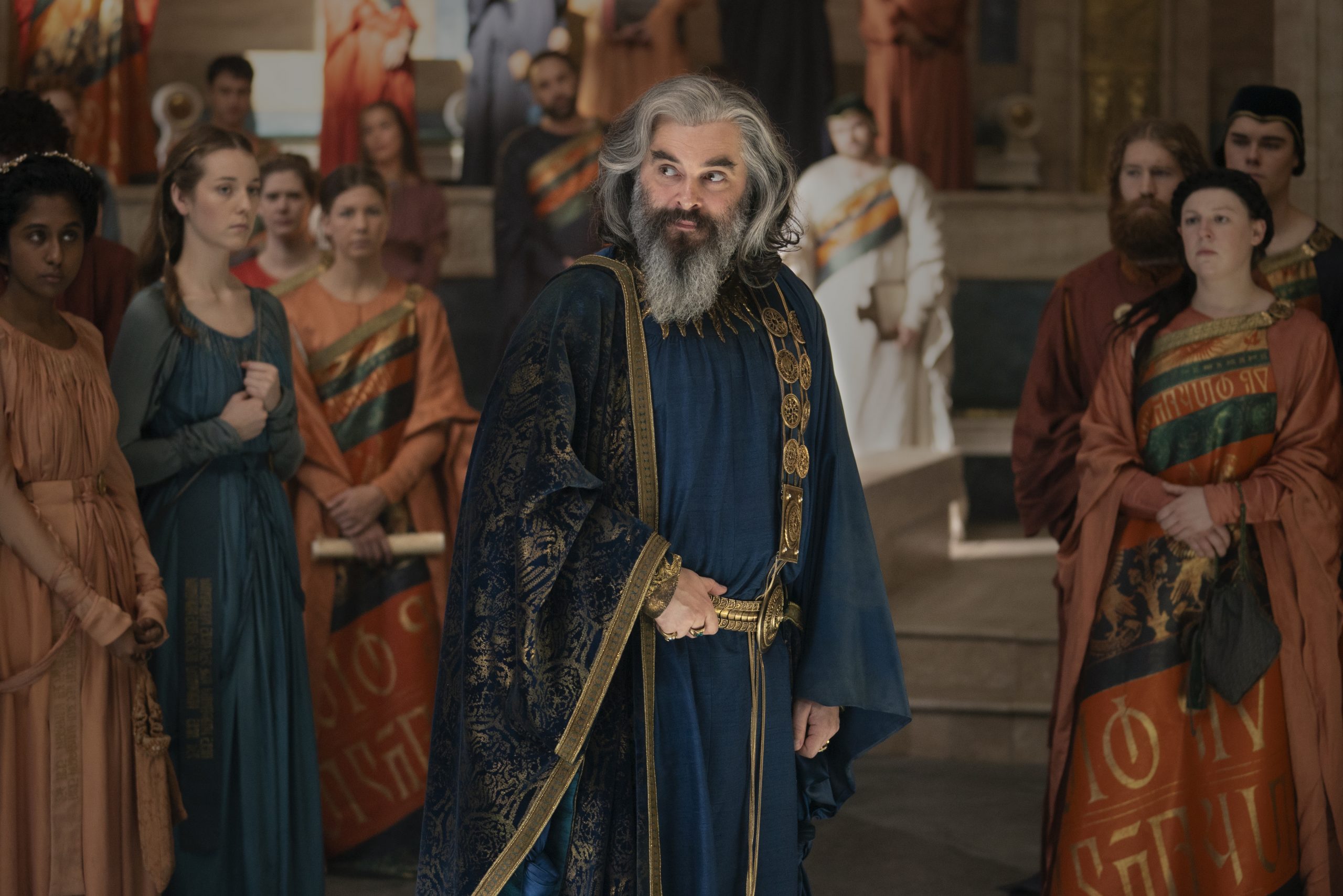
Trystan Gravelle as Pharazôn in Prime Video’s The Lord of the Rings: The Rings of Power
“That’s disappointing,” he bemoans. “It’s just not good writing and you’re not hewing to what Tolkien actually wrote. So she can’t be a strong woman unless she’s a queen is the way that they’re looking at it. And Galadriel can’t be a strong woman unless she’s a warrior leading the cavalry charge. I’m disappointed.”
He then suggests, “You can bet they read what Tolkien wrote and they probably immediately knew that they thought it was better the way they wrote it. Because they could show the queen of Númenor and they could show Galadriel, the most powerful Elf, working together in a great singularity of girl power that they had to have based on Amazon’s own projections of what the world should have looked like.”
“So I’m disappointed,” he reiterates. “Because what Tolkien set out for them was already great. It was already strong with characters male and female. They didn’t need to make these changes, but they continue to be led by showrunners and writers who are more beholden to their politics and their world view than to what Tolkien wrote. And that’s sad.”
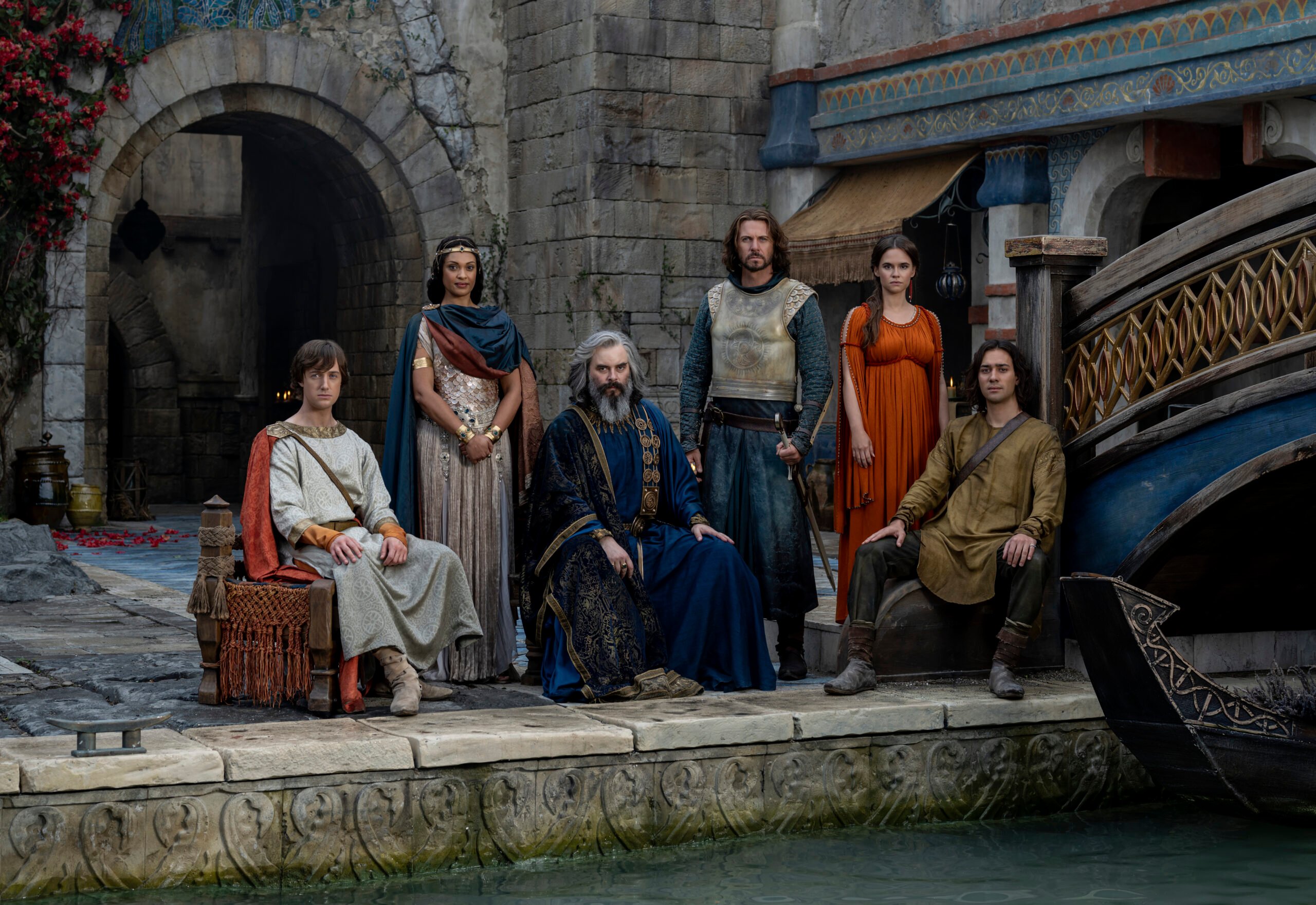
Leon Wadhman as Kemen, Cynthia Addai-Robinson as Queen Regent Míriel, Trystan Gravelle as Pharazôn, Lloyd Owen as Elendil, Ema Horvath as Eärin, and Maxim Baldry as Isildur in The Lord of the Rings: The Rings of Power
He concluded by quoting Tolkien, “And Tolkien saw that in the early treatment of the film version of The Lord of the Rings where he wrote in 1958, ‘The canons of narrative art in any medium cannot be wholly different; and the failure of poor films is often precisely in exaggeration, and in the intrusion of unwarranted matter owing to not perceiving where the core of the original lies.’ I couldn’t have said it any better and I wish Amazon had thought the same.”
What do you make of The One Ring’s breakdown of this single image and how it reveals the problems with Prime Video’s The Lord of the Rings: The Rings of Power series?
More About:Books Television


